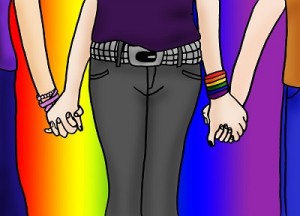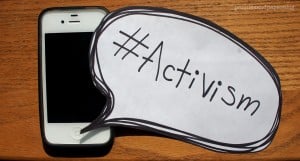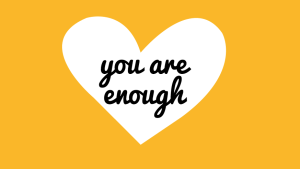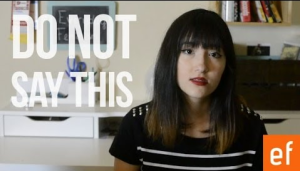When my cousin Nicky and I were little girls – she was five, and I was seven – we made a pact to marry our Uncle Richie as soon as we were grown-ups.
Richie is my mom’s youngest brother, and when Nicky’s mom and my mom (who are sisters) migrated to America, they left their daughters and sons in the care of their parents and brothers.
Our uncles, Richie and Maxi, made us feel like the world revolved around us, and that we were safe and free.
Uncle Richie was marriage material mainly on account of his infectious laugh, his appreciation for outstanding shows like Sesame Street, and his weekly commitment to taking us for ice cream.
Today, more than thirty years later, our uncles – both Black men – are happily married and consistently present fathers in their own homes.
They live in different (US) states, and some holidays, I send my daughters to their homes to get big doses of that same attention and commitment that society keeps telling us doesn’t exist in Black families.
My uncles aren’t anomalies, either.
They willingly serve as father figures in their own homes, in their respective communities, and within our family structure — like so many other Black men in America.
While it is true that Nicky’s father was a sporadic event in her life, and early on, so was mine, it would be inaccurate, not to mention incredibly offensive, to say that we grew up without fathers.
Our experiences reflect a relevant perspective that sees fatherhood as less about biological contribution, and more about emotional involvement and consistent presence.
For sure, this topic is complex, and though there are Black families who have experienced the absence of fathers and father figures, the notion that most or all Black families are navigating that particular experience is simply not true.
This absent Black father narrative leaves out the important perspectives and experiences of many, and therefore qualifies it as a myth. And not just a myth, but an incredibly damaging myth, because it overshadows the reality that there are so many ways Black men have and continue to show up for their families and communities, yet continue to be vilified or completely left out of the dominant narrative about Black fatherhood in America.
Sifting Through the Myth to Recognize the Truths
Plenty has been written to disprove the myth of the absent Black father from a statistical standpoint.
For example, the Centers for Disease Control and Prevention (CDC) released a report that examined and proved that African-American fathers are no less involved in their children’s lives than White or Latino fathers and in some cases, are even more involved.
Another report by The Pew Research Center found no significant differences in the presence and involvement of Black fathers in comparison to non-Black fathers.
But for me, this topic is far more personal than statistical.
I need to speak on this myth from the perspective of a little Black girl who grew up to be a healthy, happy Black woman, in part because I was loved and nurtured by the Black men and women in my home and in my community.
In order to do this, I want to look at three instances of effective male involvement (fathering) in Black communities. They don’t fit the traditional biological father-child dynamic, but these men’s presences certainly qualify as fathering.
In fathering, biological relationships are less important than the commitment to affecting change in the social and systemic climate that puts Black children at risk.
Through food activism, education reform, and the power of literature, many Black children are benefitting from the involvement of Black men who are committed to bettering the quality of these young people’s lives and futures.
Reclaiming Wellness Through Urban Agriculture
“Connecting people with the land builds positive personal relationships and establishes an ethic of community and environmental stewardship.” —TrulyLivingWell.com
My husband’s father spent his childhood as a happy farm boy, and he passed on a love of the land to his son. Now, he and I bring my mother – a lifelong gardener – with us to with us to nurture our love of land when we volunteer at Wheat Street Garden.
Wheat Street is part of a larger community-oriented, local food focused non-profit organization.
I have seen first-hand how families from the predominantly Black community, and students from nearby grade schools and universities are learning about economic development and environmental wellness through the center’s hands-on approach to food education.
K. Rashid Nuri became an Urban Agriculturalist because he believes in contributing to local food economy by growing food in the city and by teaching other people how to do that for themselves. He now runs a registered Atlanta 501(c)3 non-profit, Truly Living Well Center for Natural Urban Agriculture, where his team uses food production to connect their community to their food and to the land.
The one-time appointee to the United States Department of Agriculture (USDA) embedded his naturally grown foods initiative in what is known as a food desert — an area designated by the USDA as having limited access to affordable and nutritious food, specifically an area primarily comprised of low-income neighborhoods.
Through his work at Truly Living Well, Rashid opened the doors for job creation, improved health and wellness through disease prevention and food education, and intergenerational community engagement.
Certainly, K. Rashid Nuri’s presence matters.
He is fathering communities through information and literal nourishment. The same way a father in a traditional household might insist that his children eat green vegetables with their dinners, or encourage his children to learn more about their ability to affect the world with the fruit of their labor.
Uplifting Communities and Educating Children
When it comes to views on the American education system, I’m one of those people who take their kids out of schools and use unschooling to help them connect, instead of collect, dots.
But it’s not that I’m anti-school, I’m pro-learning, and there are so many Black men in this world who make learning and growth an accessible option for disadvantaged youth by doing the work they do.
Since the late 1970s, Geoffrey Canada has been effectively changing the course of the lives of hundreds of children. The education advocate and reformer is most widely celebrated for founding Harlem Children’s Zone (HCZ), an educational and social service organization based in central Harlem, New York.
Successfully serving more than 10,000 children and 13,000 adults to date, HCZ is what TIME Magazine writer, Arne Duncan, so eloquently termed “a cradle-to-career continuum of high-quality neighborhood schools and support services for disadvantaged children.”
The program began as a truancy-prevention project and later broadened its scope to offer other support services — namely drug counseling, parenting advice, after-school enrichment, access to healthcare, tutoring services, and food and nutrition classes — to children and their families within the 100-block area.
The success of Canada’s vision regarding anti-poverty efforts through community outreach and a comprehensive approach to child and family education has impacted his community as much as it has inspired and enlightened equality-focused educators across America.
He is a biological father of five, and a life-enhancing father figure to many.
Indeed, Geoffrey Canada’s presence matters.
Some father’s role in their children’s education shows up like holding them accountable for trying hard and focusing. Those conversations may happen at dinner tables or couches for some.
But for the children in Canada’s school, fathering is happening in classrooms.
He is setting a standard, and teaching them how to get confident about rising to that standard, much like many involved father tend to do.
Books That Remind Black Boys to Buck the System
“You think your pain and your heartbreak are unprecedented in the history of the world, but then you read. It was books that taught me that the things that tormented me most were the very things that connected me with all the people who were alive, or who had ever been alive.” —James Baldwin
English teachers at schools in Washington, DC and Baltimore have been feverishly requesting copies of Buck, the memoir penned by 32-year old Black filmmaker, rapper, and educator, MK Asante.
Asante’s memoir offers a welcomed alternative to these predominantly Black schools since texbooks in American schools tend to focus on White history and experiences, leaving many children feeling isolated from the references and intended lessons within them.
A level of mentorship and to some extent, fathering, is presented in a book like Buck because of its unflinching exploration of mental illness, breakdowns and perseverance within family structure, racial tension, the consequences of our choices, and thriving as a result of self-discovery.
In a 2013 interview with NPR, Asante, a tenured professor of creative writing and film, shared that he wrote the book so that “the kid that has never read anything where their story, their experience, or their language was acknowledged” would feel heard and represented.
Equally relevant in both college lecture halls and high school classrooms, Asante’s message is that of a Black boy who found his voice and his freedom through the art of storytelling — not unlike literary greats like James Baldwin.
And because there is deep self-exploration and sometimes even healing to be had when stories are told with the senses of accountability and cultural context that men like Baldwin and Asante provide to Black children — their presence matters.
When Black children hear aspects of their own stories through the unflinching lens of Black men to whom they can relate, they get to see past their circumstance.
Baldwin, a self-proclaimed “ugly Black boy” from a strict Christian family in poverty-stricken Harlem, would grow up to be one of the most prolific writers and speakers, simply for — as Baldwin himself put it, “dealing with all that anguish and that despair and that beauty.”
Likewise, Asante’s family structure survived mental illness, prison, and father-son disconnects.
But both men managed to thrive, and Black children get to see real examples of that, through men like them — surely this is a good thing. Right?
And, like my uncles, none of these men are anomalies. They serve as examples of the countless stories, untouched by media, of fathering showing up in nuanced forms and highly impactful ways.
How We Dismantle the Myth
Myths are dangerous because they operate based on assumptions and generalizations instead of a willingness to understand and to develop relationships based on mutual respect and believed equality. And we develop these relationships by engaging with communities and real people, not just statistics and media assertions.
When we see myths for what they are, we can help to change the narrative.
When we resist the outdated ideas of normalcy where family structure is concerned, we include the perspective that “father” is not just a biological term, but a complex one that must make room to represent households where love, protection, and care are freely given by men who may not share genetic likeness to the people with whom he shares a roof.
This is how we dismantle the myth of the absent Black father, so we can shift the focus from outdated ideas that don’t address the ways that family and life have changed today. We shift toward multi-layered, ever-evolving perspectives on what it means to be a father, and how we benefit from the presence of Black men in our lives in our schools, our communities, our social circles, and in our literature.
[do_widget id=’text-101′]
Akilah S. Richards is a Contributing Writer for Everyday Feminism. She is a six-time author, digital content writer, and lifestyle coach who writes passionately about self-expression, womanhood, modern feminism, location independence and the unschooling lifestyle. Connect with Akilah on Instagram, Tumblr, or her #radicalselfie e-home, radicalselfie.com. Read her articles.
Search our 3000+ articles!
Read our articles about:
Our online racial justice training
Used by hundreds of universities, non-profits, and businesses.
Click to learn more





















